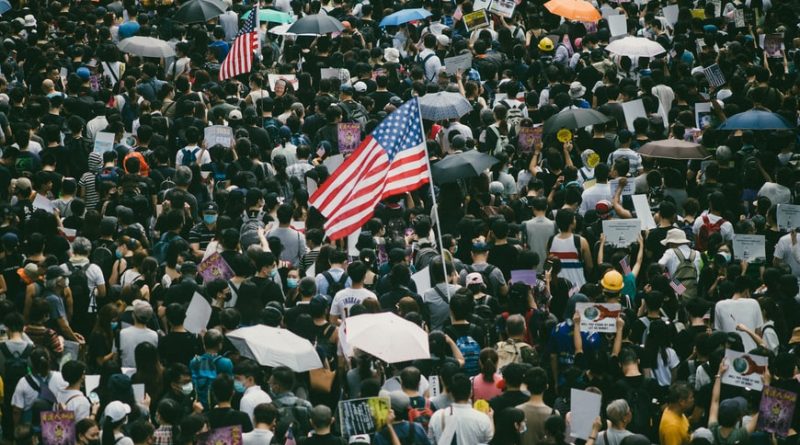COVID-19 Worsens Wounded Sino-American Relations
Daniela A. Maquera Sardon
Associate Editor
When he first took office in 2017, U.S. President Donald Trump feared that the close-knit economic ties between the United States and China would ultimately disadvantage America’s economy. Now, in 2020, the novel coronavirus has validated Trump’s theory and exacerbated the U.S.’s antagonistic view of the Asian superpower. The pandemic and its ripple effect on the global economy revealed the high dependence of the U.S. and its companies on Chinese production.
While a few experts like Robert Zoellick, the U.S. Trade Representative at the time China joined the World Trade Organization, consider cooperative policies to be beneficial to U.S. interests, most Trump administration advisors on China argue otherwise. Although Trump’s initial trade policies with China incited criticism and even opposition, the outbreak of COVID-19 overshadowed such voices. Recent developments further show that even though U.S.-China relations were not the root cause of the slow initial response to the virus, Washington utilized the pandemic to vindicate Trump’s trade policy and move further with his nationalist agenda.
Before China announced its first COVID-19 cases in December 2019, the Trump Administration was in the process of drafting its first-ever Economic National Security Strategy, which aimed to eliminate economic security threats to the U.S. However, after assessing the pandemic’s unfolding, American officials followed up on the strategy with increased urgency since they considered the country’s survival at risk amidst the heath and economic crisis, Foreign Policy reported. From technology in critical infrastructure to supply chains for life-saving medical equipment, the U.S. had to turn to its geopolitical rival.
Prior to the pandemic, the U.S. devised a plan containing three strategies to hinder China’s economy while strengthening its own: a trade war, a technological blockade, and ideological attacks. However, the U.S. failed to deleverage China from its global power status, proven by the limited impact of the trade war on China’s economy. According to The Diplomat, now that COVID-19 has worn out resources on both sides, some experts argue that adopting restrictive and punitive policies are bound to fail. On the other hand, some scholars recall that historically peaceful relations between states have faltered in crises, which exacerbate global rivalries.
When Trump first introduced tariffs on Chinese goods in 2018, the atmosphere between the two countries was icy, the South China Morning Post reports. Throughout trade negotiations, President Xi Jinping and President Trump refrained from directly criticizing their counterparts. However, once the pandemic hit, each side took off its diplomatic mask. Instead of prompting cooperation, the pandemic deteriorated the already chronically bad relations between the U.S. and China.
While the long-term damage is yet to be seen, the immediate effects of COVID-19 on Sino-American ties have been clear since mid-March. Conspiracy theories about the virus’s origins led to finger-pointing. Chinese Foreign Ministry spokesman Zhao Lijian publicly promoted an unfounded conspiracy theory that the virus was brought to China by the U.S. military. According to the New York Times, Xinhua, a Chinese news outlet, referred to the outbreak as the “Trump pandemic” on Twitter in March. Trump responded by calling it the “Chinese virus.” The dispute escalated beyond words as Trump threatened to tear up the phase one trade deal and add new tariffs, CNN writes.
David Zweig, professor emeritus at the Hong Kong University of Science and Technology, explains that while the trade war has been raging for two years, the stakes are now at a new high. Aside from creating high unemployment levels, the pandemic has claimed over 100,000 lives in the U.S. Furthermore, nationalist sentiment began surging in both countries as the pandemic unfolded. Yu Wanli, deputy director at the Lian An Academy think tank in Beijing, claimed that compared to past events such as the Tiananmen crackdown, there are no longer any pro-China voices on the U.S. political spectrum. Public opinion has also shifted. A recent Pew Research poll found that 66 percent of Americans held an unfavorable view of China, the highest percentage recorded since the annual survey began in 2005.
State media and officials from both sides helped foster antagonism and rivalry between the two powers. Even diplomatic ties have suffered. As the allegations of China’s failed initial response to COVID-19 prevailed in U.S. media, China sent diplomatic envoys abroad to defend its image. The increasingly combative tone of some Chinese diplomats fueled tensions and sparked worldwide criticism, The New York Times reports. The widespread hostile rhetoric toward the Chinese government, however, has not been enough to defeat China. The Asian superpower’s latest responses to the pandemic prove the outbreak has boosted its global influence.
According to CNBC, China is using the crisis to enhance its global image through “mask diplomacy”. By providing medical supplies to countries hit hard by the pandemic, especially in regions of Africa, Eastern Europe, and Latin America, China has been attempting to cement its presence in the world. On the other hand, U.S. global leadership remains nowhere to be seen.
Without any signs of future cooperation, the virus has strengthened the “America First” attitude among U.S. officials. However, scholars on Sino-American relations and the global economy recommend otherwise, citing that a partnership is necessary, especially due to the rising virus death toll and economic crash in the U.S., Channel New Asia writes. Reports of the handling of the virus are well documented, and despite some scholars criticizing China’s draconian measures, they recognize that China ultimately controlled the outbreak and stopped its rising death toll, according to The New York Times.
However, for the presidents of both countries, increasing national support is more important than scaling down the tension. According to Bloomberg, Xi and Trump are in a similar crusade to retain power; Trump continues with his hostile rhetoric against China as the November presidential elections approach, while Xi prepares for a 2022 conclave that will serve as a leadership contest for China. Experts on U.S.-China relations explain that ties will remain stiff if Trump insists on proving American superiority over China to help his reelection campaign.
Worsened by measures ranging from visa restrictions to cut trade ties, U.S.-China relations are boiling to the extent that nuclear war has become a hotly debated topic in Beijing and Washington. Experts from both countries, however, call a major war “suicidal” and refer to it as a worst-case scenario. Gao Zhikai, a former Chinese diplomat and interpreter for ex-Chinese leader Deng Xiaoping, explained that due to the dependency and interwovenness of the two countries, an armed conflict would not be contained in a conventional form for too long. Moreover, while there has been a tendency to overestimate the advantages of being “tough” on China, experts fear that downplaying the costs could lead to mutually destructive consequences.
As of now, besides trade talks, the U.S. and China have not held formal talks on issues such as military relations or cybersecurity. Without direct contact and multifaceted ties, some are beginning to allude to a “New Cold War” between the U.S. and China. Experts fear the zero-sum mentality that once reigned in Washington during the Cold War might be resurging. The stakes of calling the conflict a New Cold War are high, as many vividly remember the close instances of Mutually Assured Destruction such as during the Cuban Missile Crisis.
According to The Hindu, although the rising conflict between the U.S. and China seems to resemble Cold War-era U.S.-Soviet relations, there are missing elements that prevent experts from concluding on the inevitability of war, including proxy wars and a bipolar world order. Nirupama Menon Rao, who served as India’s Foreign Secretary in both the U.S. and China, explained that tension could prevail as long as the international system remains broken from the pandemic.
Additionally, the outbreak challenged the global economy and disrupted international supply chains, demanding a so-called “great decoupling”. Former U.S. Deputy Secretary of State Robert Zoellick described this as getting rid of the distinctive characteristics that differentiate the relations between the U.S. and China. According to Foreign Policy the struggle for the U.S. to function and produce on its own amidst the pandemic reinforced the “American First” protectionist agenda. While it remains unclear how Washington will replace China as the second-largest U.S. creditor, which holds more than $1 trillion in U.S. debt, the country is moving towards initiatives that are less reliant on China.
Shutting the economy for the initial months of 2020 due to COVID-19 created the perfect “clean slate” for the U.S. to reshape its economy. According to Politico, the high costs of pulling away when the economy is healthy and the supply-chain machine working discourages companies and governments from recreating the economic system. In a bid to force suppliers to relocate their factories, the Trump administration is using national security arguments to levy tariffs on mainly Chinese goods. Many companies are starting to leave China, moving production both to other Asian countries such as Vietnam and back to the United States.
Decoupling, however, is also expected to create major losses that could lead to companies initially resisting policies that hurt their share price. Shehzad H. Qazi, the managing director of the China Beige Book, forecasted that a push to increase self-sufficiency in one country could cut off export opportunities and hinder multilateral trade in the long run. Tearing down the economic ballast could bring about more daring challenges that could further hinder the U.S.
Contemporary scholars hope that the failed triple strategy to counter China and the challenges brought by the pandemic will persuade the Trump administration to concentrate on the post-pandemic recovery and readjust its China policy. In order for Sino-American relations to improve, both must accept a win-win scenario and fight against their shared enemy: the coronavirus. The current international order no longer allows for absolute gains-global politics and economics have evolved to function better under mutual cooperation.


